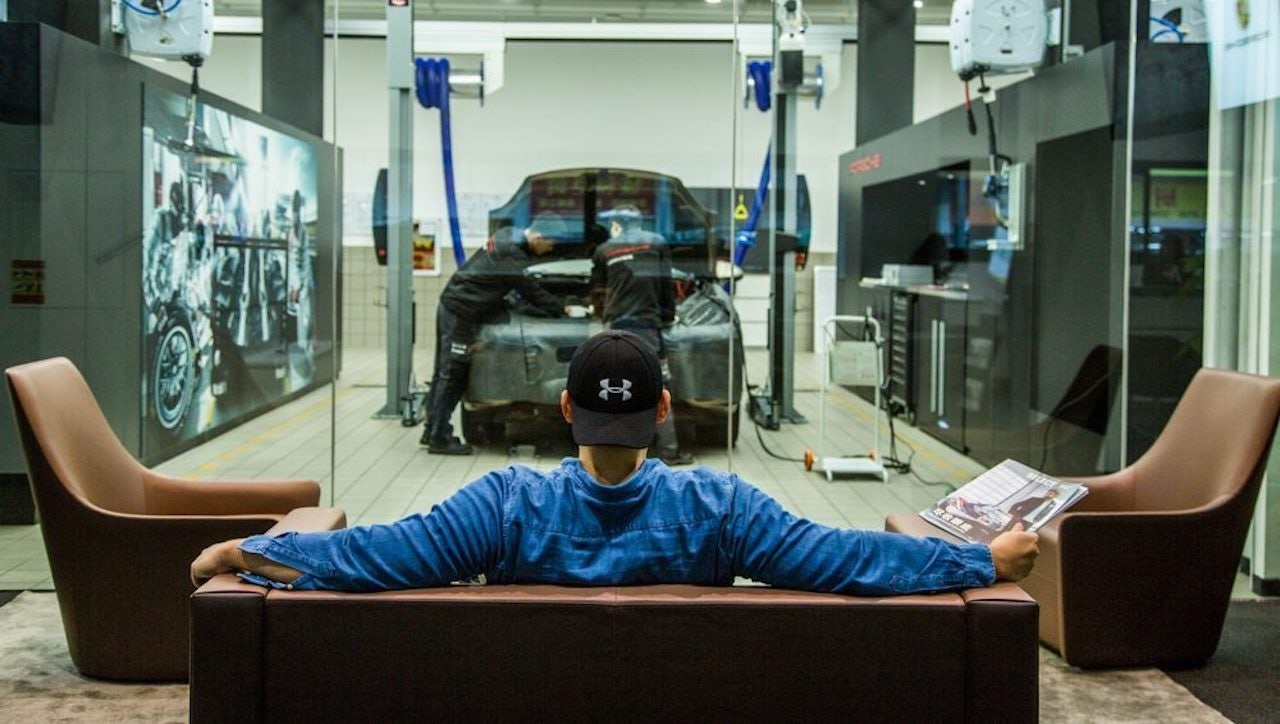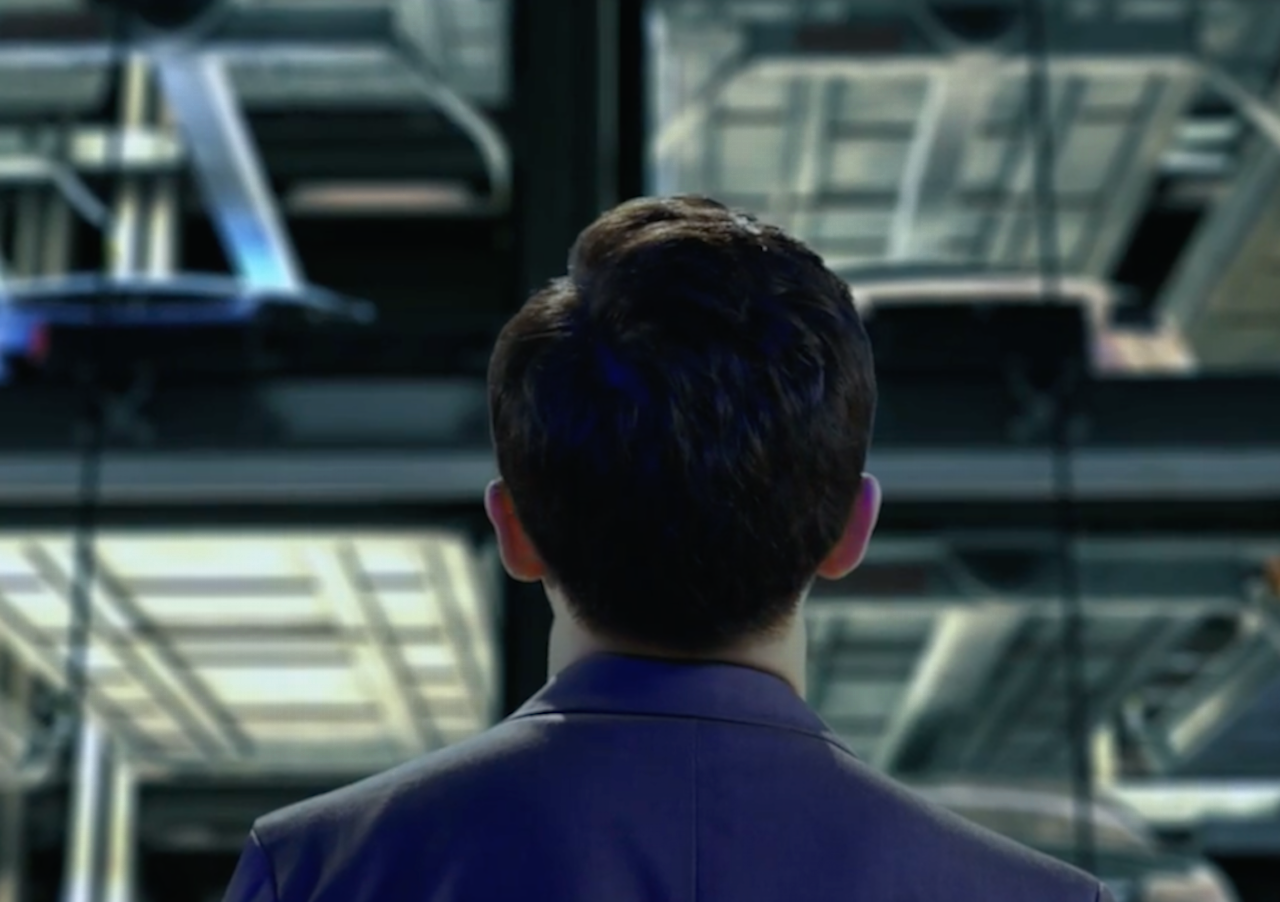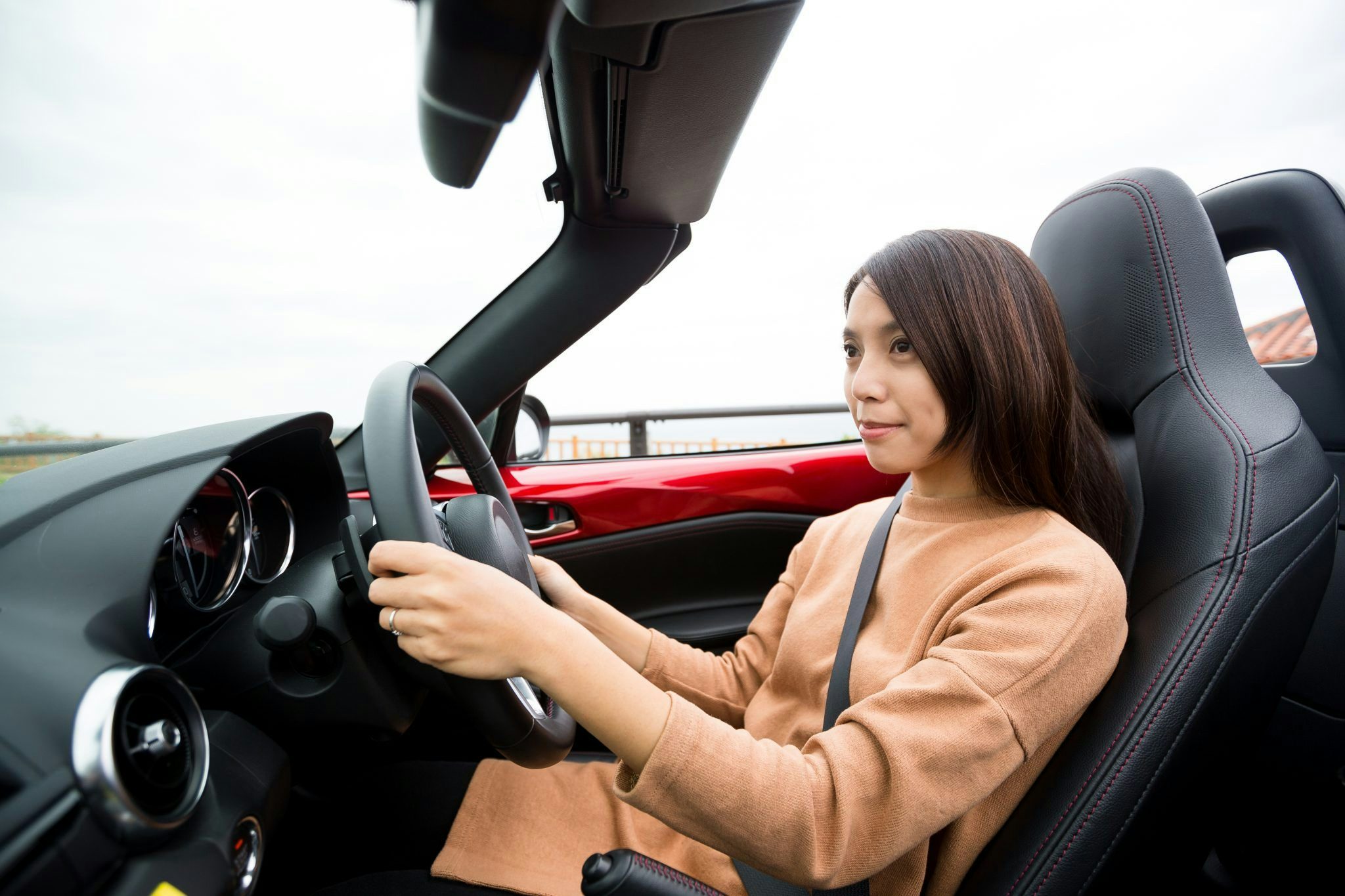Chinese luxury car buyers will soon constitute the biggest luxury car market in the world. But a market that was once all about China’s fuerdai (second generation rich) showing off has evolved, like the rest of the luxury industry, as Chinese consumers become more sophisticated and discerning. It’s not just the cars that have changed, either — the dealerships are responding to trends that look a lot like those in other aspects of luxury retail.
Chinese consumers have shown time and again that, in a world that’s becoming highly digitally focused, they value experiences when it comes to luxury retail. Mercedes Benz recognized this and introduced its experiential showroom for both current and aspirational customers in Beijing, called Mercedes me. They engage with their customers via WeChat, drawing them into the space with regular events and exclusive offers. But luxury car companies don’t always have to be incorporating a bar, café and fashion shows to be offering heightened engagement opportunities for customers.
Now, one of the largest Porsche dealer groups in the world, Jebsen Motors, has unveiled a never-before-seen Porsche City Service Centre concept in Shenzhen Luohu. The design of the workshop takes its cues from motorsport. Everything from murals of a racing crew changing tires in the maintenance zones, to the asphalt-style floor pays homage to races like 24 Hours of Le Mans where Porsche has won numerous victories.
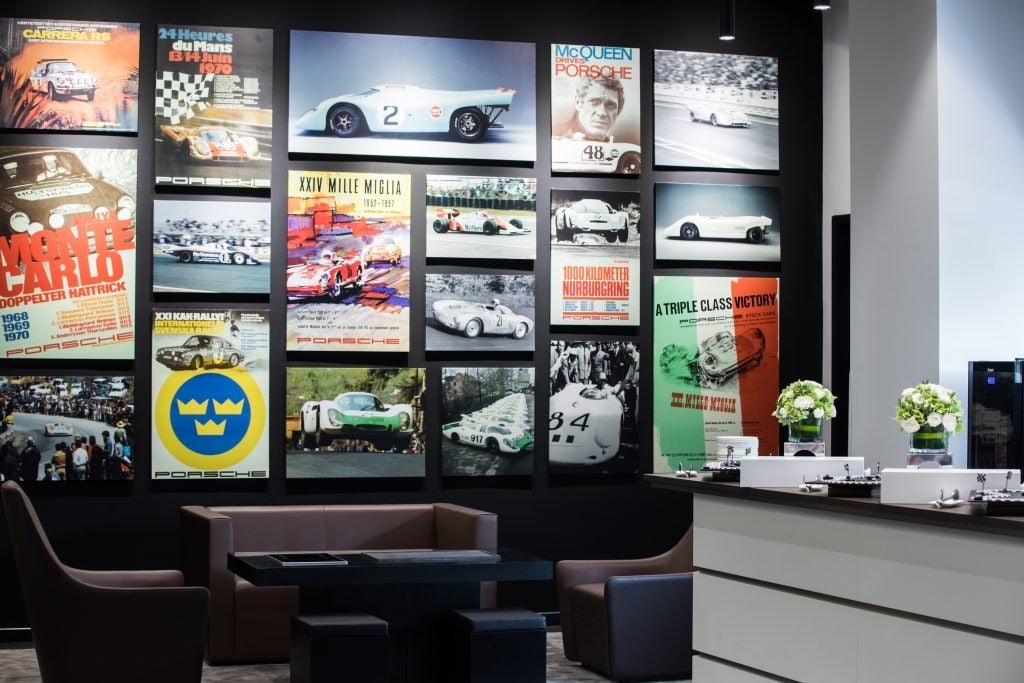
Jebsen Motors is also working to tap all of the customer’s senses, with managing director Joachim Eberlein saying they hope to develop a scent in the shop that would give customers the feeling of being at a race track.
TVs in the lounge area currently broadcast video campaigns and racing clips, but eventually the goal, Eberlein said, is to have the screens personally greet car owners coming to get their vehicles serviced. And, when their car is ready, they would get a WeChat notification to pick it up. Floor to ceiling glass windows currently allow customers to watch their car getting fixed from the comfort of sofas, and a coffee machine that lets them 3D print selfies in their latte foam.
“Instead of opening just another workshop like everyone else has in the Porsche world, we decided we wanted to do something different,” Eberlein said. “Here the concept is to involve the customers. In a normal workshop, we have a lounge area where a customer can get tea and watch TV, but the customer cannot see his car. But in here, you are exactly next to your car, while the technicians are working on it. These cars are pretty expensive, and customers like to be involved in this process.”
Engagement, not motorsport is likely going to be one of the key benefits of the new dealership for customers. Even though Jebsen Motors has its own race team for the Porsche Carrera Cup Asia, with a Shanghainese driver, Cui Yue, “only a small percentage of Chinese customers are really interested in motorsports,” Eberlein said. When they do host live screenings of races in Asia and buffet spreads to go with it, it’s not like in Europe where “hundreds of customers” will come to watch the Formula 1 races. “Here maybe only 20 or 30 hardcore customers come and it’s always the same group of people.”
“China is not like any other mature markets, where people would immediately think of 911 sports cars when they think of the brand,” Eberlein adds. Luxury car buyers in China often turn to the Porsche brand because either the name is familiar to them or they, like many of their luxury car buyer peers, are attracted to their SUVs. More than 80 percent of Porsche sales in China are for the Cayenne and Macan SUV models.
But even though the consumer is slightly different from the West, it’s easy to argue that the behavior of a luxury car consumer is not unlike that of other industry segments — they need an experience to motivate them to buy.
Not long before the service center opened in Shenzhen, Jebsen Motors revealed a digital showroom — Porsche Studio Guangzhou. Facing the street in a popular high-end shopping mall, the space plays up digital experiences and takes extra steps to cater to consumer engagement. For one, it’s the first Porsche dealership to have two “product experts” on staff, that’s similar to the “genius” at an Apple Store, Eberlein explains.
Unlike a salesperson, the product expert’s only job is to explain the various car models, what’s under the hood, and all of the customizable features. Eberlein said that as car models released in the Chinese market become more complex, people want to talk to somebody about what they’re buying without the added pressure.
At Porsche Studio Guangzhou, the Jebsen Motors team also added a delivery expert who will sit down with the buyer and explain the features of the car. They invite customers who have purchased a vehicle to return to the studio after two weeks for a workshop where experts will explain car basics, like how to change a tire or change their oil. And entwined in all of this are a lot of tech-forward features, like letting customers experience virtual customizable options on an iPad. They also have dedicated sales people who will respond to potential customers via WeChat who have gotten in touch through China’s car e-commerce sites.
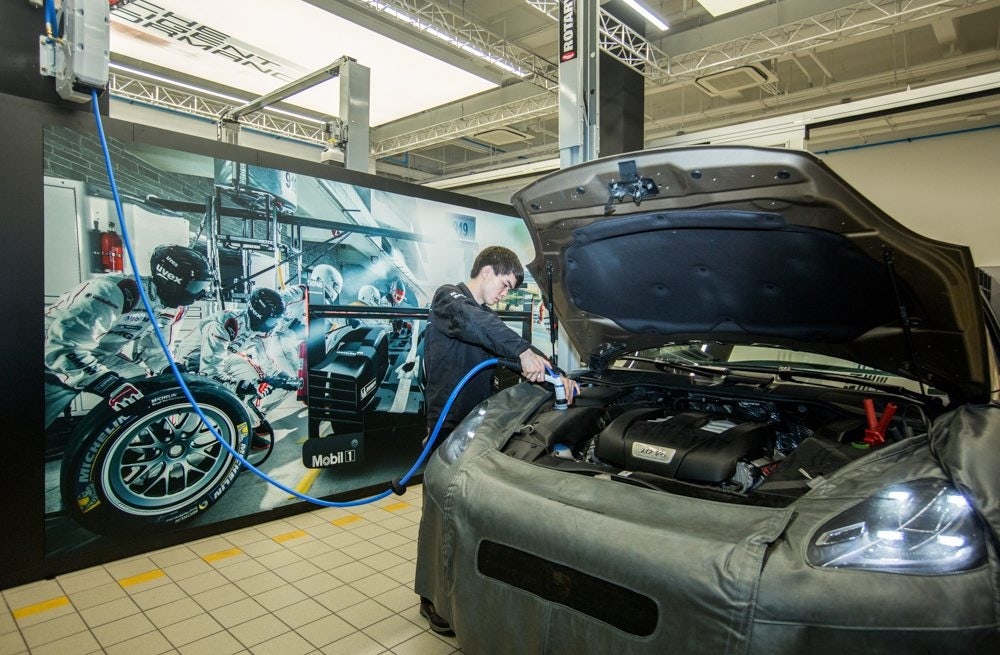
Eberlein emphasizes that though they are embracing digital touchpoints, they’re a long way from actually selling cars online. But online to offline communication has proved valuable — last year nearly 20 percent of Jebsen Motors' Porsche dealership sales were initiated through digital channels.
“That’s why for us, with all of these trends in digitalization, it’s good to initiate the contact but then, the follow-up still needs good people who sit down with you,” Eberlein said. “You need to have a place where they can see and feel the car.”
“I believe every customer would like to sit here — it’s just a nice place,” he adds, referring to the guest lounge of Shenzhen Luohu. “The windows are clean, the coffee is good, what else would you want?”
